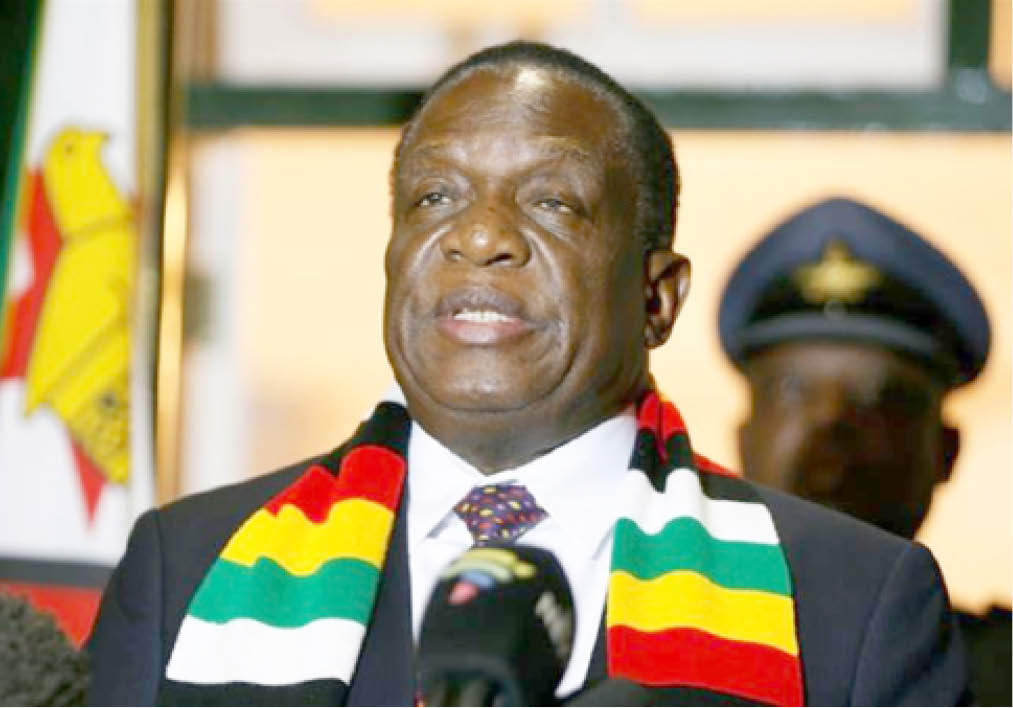Zimbabwe’s president addresses worsening economic crisis
Zimbabweans are currently embroiled in a deep economic crisis propounded by serious fuel and electricity scarcity. There is also a hike in the prices of these items leading to surging inflation in the country. Due to this crisis, President Emmerson Mnangagwa addressed the nation on Tuesday, October 1st, 2019. He urged the citizens of Zimbabwe […]

Zimbabwe’s President Emmerson Mnangagwa
Zimbabweans are currently embroiled in a deep economic crisis propounded by serious fuel and electricity scarcity. There is also a hike in the prices of these items leading to surging inflation in the country.
Due to this crisis, President Emmerson Mnangagwa addressed the nation on Tuesday, October 1st, 2019.
He urged the citizens of Zimbabwe to have more patience and give him time to resurrect the country’s ‘dead’ economy.
“I’m aware of the pain being experienced by the poor and the marginalized. Getting the economy working again from being dead will require time, patience, unity of purpose and perseverance,” Mnangagwa said.
In his speech, the president acknowledged the economic crisis as well as the need for reforms.
He also reiterated his commitment to implement recommendations made by election-observer missions to Zimbabwe’s 2018 election, as well as a commission of inquiry led by former South African President Kgalema Motlanthe. The observers and the commission had suggested that there should be broad security, political and electoral reforms.
Zimbabwe’s economy took a nosedive under the regime of the late infamous leader, Robert Mugabe. However, Zimbabweans are heaping most of the blame on Emmerson for the dire situation they are currently facing.
Since August, Zimbabwe has temporarily stopped the publication of its annual inflation data. In the previously published data, Zimbabwe’s official figures show that inflation hit more than 175 per cent in June, its highest level since hyperinflation under Mugabe wiped out the economy in 2009.
The citizens have run out of patience and understanding in the face of these acute shortages of fuel and electricity as well as soaring prices. Their faith in him since Mugabe was deposed in 2017 seems to be growing thin.
However, his address on Tuesday was boycotted by the main opposition Movement for Democratic Change (MDC) which disputes his election. Although, Emmerson has invited them for dialogue they have refused to take part in a dialogue forum convened by Mnangagwa, insisting on talks led by a neutral mediator.
Emmerson’s critics have accused him of lacking dedication to political reforms and repeating Mugabe’s actions by stifling critics and dissent.
However, the president and his administration insist that they are doing their best to lay the foundations for future growth, and they blame Western sanctions for hampering recovery and deterring investment.
Previously, on September 27, a United Nations human rights envoy stated that “Zimbabwe’s political and economic environment was deteriorating, causing anxiety as hopes fade for a long-awaited improvement in people’s living conditions.”
Lending its voice to the UNs’, the International Monetary Fund also admonished Zimbabwe and its government to intensify reform efforts and meaningfully improve transparency to boost economic growth.
